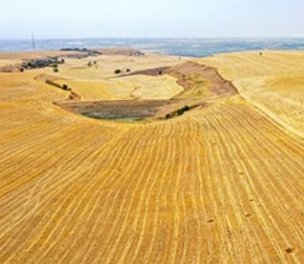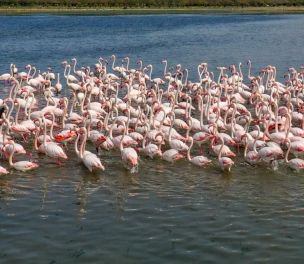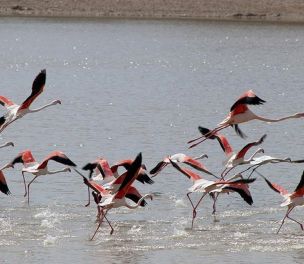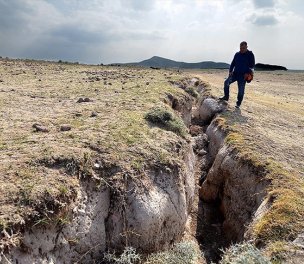Photos: AA
Click to read the article in Turkish
Releasing a joint statement on the mass deaths of baby flamingos in Lake Tuz (Salt), 51 organizations have pointed out wrong agricultural practices since the 1960s that caused a massive reduction in wetlands in the country.
Lake Tuz is Turkey's second-largest lake and the largest breeding ground for flamingos in the Mediterranean Basin with some 20,000 couples incubating every year.
Recently, three to five thousand flamingos are estimated to have died in the lake, which has been facing drought for years.
CLICK - Hundreds of baby flamingos die in Turkey's Lake Tuz
"The water resources that feed the lake have been interfered with since the 1960s," said the groups, pointing out the dams ponds built on streams flowing into the lake.
"The only water source reaching the lake in recent years has been the drainage channel that carries the drainage waters of the Konya-Çumra Plain, even if it is polluted with agricultural wastes," says the statement. "This year, the villagers in the vicinity irrigated their fields with the water they had accumulated in the canal by setting up embankments on the drainage canal, and Lake Tuz was largely left without water."
Unlicensed water wells and overuse
The excessive number of unlicensed water wells in the Konya Closed Basin, which is known as the "breadbasket" of Turkey, is a key reason for the drought, according to the NGOs.
There are about 140,000 water wells in the region and only 35,000 of them are licensed, they said, citing the State Hydraulic Works (DSİ). How much water is used from these wells and which irrigation methods are used are not known, said the NGOs.
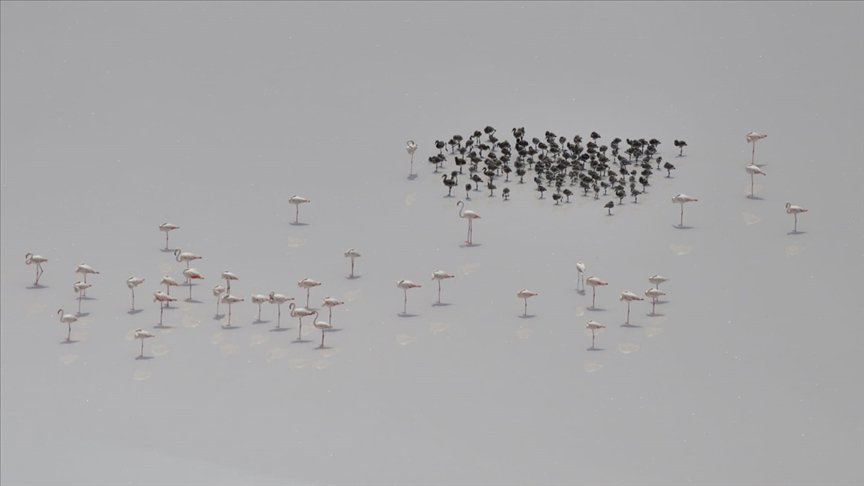
During this time, several other lakes in the region have also been dried, they said, noting that the Gediz Delta and Lake Tuz are now the only places where flamingos can breed.
"In the last 70 years, more than 60 percent of the wetlands in our country have been irreversibly lost. The remaining ones have severe damage as a result of wrong agricultural policies, interventions to the water regime, and pollution.
"... Once upon a time, the Konya Closed Basin was a paradise of wetlands all across Europe. There were nearly twenty wetlands in the basin with a total area of 350 thousand hectares.
"The Konya Closed Basin is one of the regions that receive the least rainfall in our country. The region meets most of its water needs from groundwater. However, the groundwater is also rapidly decreasing due to overuse.
"While the decrease in groundwater level was around 1 meter in the 1980s, today the annual average decrease has exceeded 2 meters, according to the DSİ data."
_tuzgoluflamingo2.jpg)
Turkey should prioritize the protection of its remaining wetlands, the NGO said. "Otherwise, it is inevitable that we will lose Lake Tuz and other important areas with tens of thousands of living beings."
Along with local associations and environmental groups, the World Wide Fund (WWF) Turkey and the Foundation for the Protection and Promotion of the Environment and Cultural Heritage (ÇEKÜL) are among the signatories of the statement. (TP/VK)




.jpg)
as.jpg)
